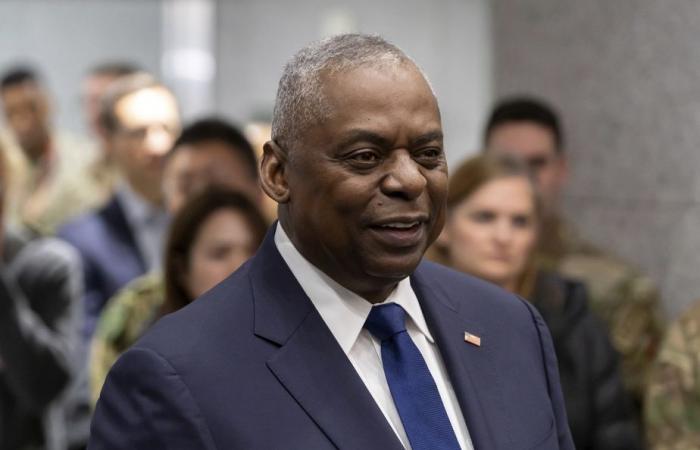(Washington) A military appeals court has ruled against Defense Secretary Lloyd Austin’s attempt to overturn plea deals for Khalid Sheikh Mohammed and two other defendants in the Sept. 11, 2001, attacks, according to an American official.
Published yesterday at 4:17 p.m.
Ellen Knickmeyer
Associated Press
The decision puts back on track the agreements that would have allowed the three men to plead guilty to one of the deadliest attacks in the United States in exchange for exemption from the death penalty. Al-Qaeda attacks killed nearly 3,000 people on September 11, 2001, and helped spark the U.S. invasions of Afghanistan and Iraq in what the George W. Bush administration called its war against terrorism.
The military appeals court issued its decision late Monday, according to the U.S. official, who was not authorized to discuss the matter publicly and spoke on condition of anonymity.
Military prosecutors and defense lawyers for Khalid Sheikh Mohammed, the alleged mastermind of the attacks, and two co-defendants have reached plea deals after two years of government-sanctioned negotiations. The deals were announced late last summer.
Supporters of the agreements see them as a way to resolve the legally problematic case against the U.S. military commission men at the Guantanamo Bay naval base in Cuba. Preliminary hearings for Khalid Sheikh Mohammed, Walid bin Attash and Mustafa al-Hawsawi have been underway for more than a decade.
The bulk of the arguments focused on how the torture these men suffered while in CIA custody during the first years after their detention could taint the overall evidence in the case.
Days after the plea deals were announced this summer, Mr. Austin issued a brief order saying he was vacating them.
He cited the severity of the Sept. 11 attacks in saying that as defense secretary he would have to decide on any plea deal that would spare the defendants the possibility of execution.
Defense lawyers argued that Lloyd Austin had no legal authority to reject a decision already approved by the highest authority at the Guantanamo court and said the move amounted to illegal interference in the case.
The military judge in the 9/11 case, Air Force Col. Matthew McCall, agreed that Mr. Austin did not have standing to reject the plea bargains after they were in effect. course. This gave rise to the Ministry of Defense’s appeal to the military court of appeal.
Mr. Austin now has the opportunity to take his request to vacate the plea agreements to the District of Columbia Court of Appeals. The Pentagon did not immediately respond to a request for comment.
Other detainees transferred
The Pentagon also indicated that it had repatriated one of the oldest detainees from the Guantanamo military prison, a Tunisian whose transfer had been approved by the American authorities more than ten years ago.
The return of Ridah bin Saleh al-Yezidi to Tunisia leaves 26 men in Guantanamo. That’s down from a record population of nearly 700 Muslim men detained overseas and brought to the prison in the years after the Sept. 11, 2001, attacks.
Al-Yezidi’s repatriation leaves 14 men awaiting transfer to other countries after U.S. authorities dropped charges and declared them not a security risk.
Joe Biden’s administration, pressed by human rights groups to release remaining Guantanamo detainees held without charges, transferred three more men this month.
The United States says it is looking for suitable, stable countries willing to take in the remaining 14 prisoners.
In a statement, the US military said it had worked with Tunisian authorities for the “responsible transfer” of al-Yezidi. He had been a prisoner at Guantanamo since 2002, when the United States began sending Muslim detainees captured abroad there.
Al-Yezidi is the last of a dozen Tunisian men formerly detained at Guantanamo.
Of those remaining at Guantanamo, seven – including Mohammed and his 9/11 co-defendants – face criminal charges. Two more of the total 26 were found guilty and sentenced by the military commission.






